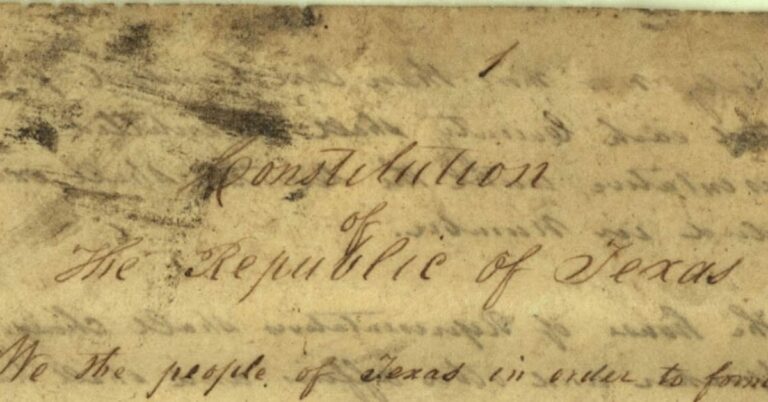There is a misconception that there can be no Texit without first having drafted and ratified a new constitution for an independent Republic of Texas. Given the unwieldy size of the current Texas Constitution, there might be some merit to revisiting it. However, the assertion that no Texit can take place without it is completely wrong. In fact, without some changes to the existing constitution, post-referendum, the Texas government doesn’t possess the legal authority or the statutory framework to move to the next step.
The problem is basic. There is no legal framework for Texas to engage the United States on equal footing. The legal framework that currently exists allows Texas to engage the other States within the Union, but nothing that allows Texas to engage them all as a collective entity. As a State of the Union, we are prohibited from entering into treaties under Article 1 Section 10 of the United States Constitution. This is problematic, as a significant portion of the negotiation and transition will require Texas to sit across the negotiating table with representatives of the United States as well as other countries as equals to execute international agreements on a variety of issues.
Luckily, in the wake of an affirmative vote for Texit, Texas has the power to make the needed changes to the Texas Constitution required to start the process without rewriting the entire document. In the 1960s, a complete overhaul of the Texas Constitution was completed through what became known as the Deadwood Amendment. It was a single constitutional amendment that removed redundant or obsolete language from the Texas Constitution. Some of these provisions dealt with land issues related to Spanish land grants. Some dealt with cleaning up language that existed elsewhere in the Constitution or had been overturned by the courts. All these edits and changes were rolled into a single constitutional amendment and placed before the voters of Texas.
In a similar fashion, any substantial constitutional changes required because of the independent status of Texas can be accomplished in this way without requiring a constitutional convention. This would include changing the official name of Texas from the “State of Texas” to the “Republic of Texas,” as well as removing references to the United States, the federal government, and the federal Constitution. It should also include changing the names of elected positions in Texas government to reflect its new national character. For example, it could rename the office of governor to president and the legislature to congress. While these are somewhat cosmetic changes, the most significant change will include redefining the role of the Texas secretary of state and expanding the duties of the office to include international relations.
The most important addition, however, will be the addition of a constitutional provision granting treaty-making authority to the Texas government and defining the process under which treaties are proposed and ratified.
At some point early in this phase of the process, Texas will also have to deal with some gaps in current State statutes. While there is an equivalent State-level agency to nearly every federal-level agency, making the transition of executive and administrative functions much easier, there are likely some holes in the legal framework. We see an example of this right now as the UK vigorously debates legislation in this regard because of its exit from the European Union. A by-product of being in a political and economic union for an extended period is that, in many instances, the member states of a political union defer to the laws and regulations of that union in certain areas. Therefore, laws at the state level that are equivalent to those at the federal level simply have never been written and do not exist in the newly independent nation-state.
The UK has chosen to address these gaps through a single, comprehensive piece of legislation that will enact many of these laws and regulations. However, while Texas may wish to follow suit, there is an equally good chance that the low-regulation, small-government attitude of Texas will look at this an opportunity to simply end many of the regulations, laws, and programs that only exist in Texas due to the imposition of the federal superstate.
However Texas chooses to address it, underlying it all is a clean slate. It is an opportunity for Texas to begin to shape its government and policy to address the fundamental challenges that Texans will face in the very early stages of Texit.



